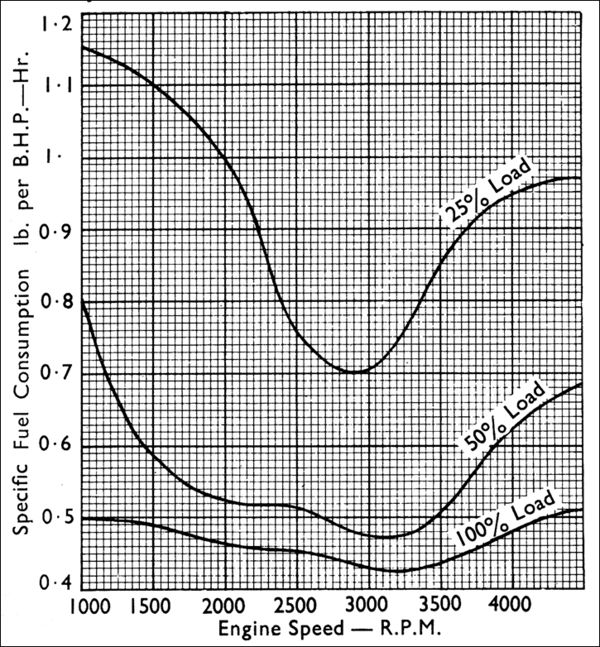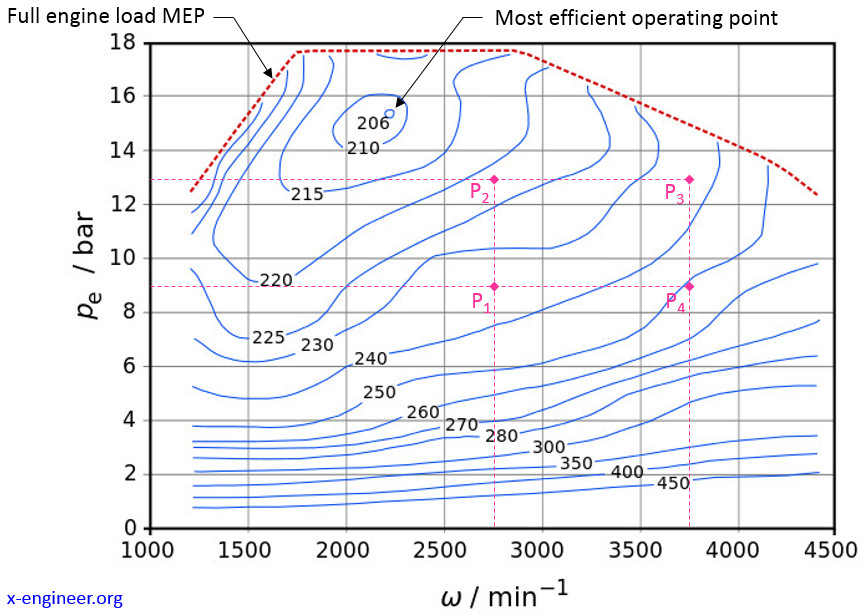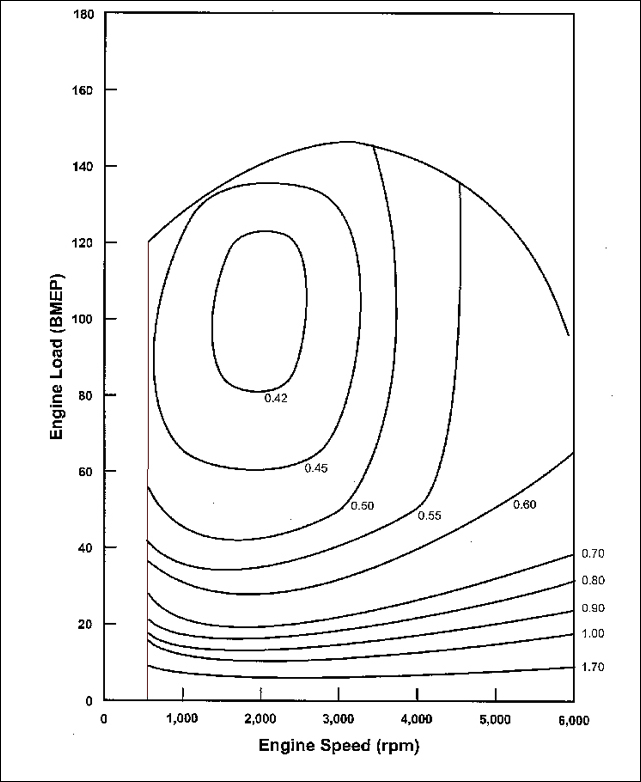
Brake specific fuel consumption (BSFC) of diesel engine... Download
Keywords: Brake specific fuel consumption; volumetric efficiency; Intake runner length 1. Introduction Modifying the intake pipe length improves the air charging method in internal combustion engines and leads to increase the volumetric efficiency and to reduce the brake specific fuel consumption.
Hybrid Assistant Brake Specific Fuel Consumption
Brake-specific fuel consumption ( BSFC) is a measure of the fuel efficiency of any prime mover that burns fuel and produces rotational, or shaft power. It is typically used for comparing the efficiency of internal combustion engines with a shaft output. It is the rate of fuel consumption divided by the power produced.

Brake specific fuel consumption Open Source Ecology
Brake specific fuel consumption is the ratio of a mass flow rate of the fuel supplied to the engine to the brake power obtained at a crankshaft and it indicates how efficiently the fuel is used to produce brake power. Mathematically it is expressed as, BSFC = Fuel mass flow rate(. m) Brake power(BP) BSFC = Fuel mass flow rate ( m.)

Variation of brake specific fuel consumption. Download Scientific Diagram
There is a corresponding brake specific fuel consumption ( BSFC) for engines that produce shaft power. Gathering all the terms together, TSFC is the mass of fuel burned by an engine in one hour divided by the thrust that the engine produces. The units of this efficiency factor are mass per time divided by force (in English units, pounds mass.

Brake specific fuel consumption at varying engine speed of the water
To measure its energy efficiency, the brake specific fuel consumption (BSFC) is used. This refers to the fuel consumption of the engine per kilowatt-hour of work and is crucial for improving.

Brake Specific Fuel Consumption (BSFC)
Brake Specific Fuel Consumption: The Brake Specific Fuel Consumption of an engine is defined as the fuel consumed per unit power produced by the engine in a given time. It is an important performance parameter of an engine and is usually expressed in units of kg/kWh. The BSFC of an engine is typically lower at higher loads and higher at lower.

depicts the variation of brake specific fuel consumption (BSFC) of the
Specific Fuel Consumption (SFC), also known as Brake Specific Fuel Consumption (BSFC), is a measure of the fuel consumption rate per unit of power produced by an engine. It is commonly expressed in units of fuel consumption per unit of power, such as grams per kilowatt-hour (g/kWh ) or pounds per horsepower-hour (lb/hp-hr ).

Specific Fuel Consumption
Definition & Description BSFC stands for Brake Specific Fuel Consumption. It tells you how much fuel your engine will use per hour for each horsepower it makes. BSFC changes with engine load and rpm. A lower BSFC value is MORE efficient. Higher BSFC numbers are LESS efficient. How is it calculated? BSFC can only be measured on a dyno.

Brake Specific Fuel Consumption Download Scientific Diagram
Suppose you have an engine with a fuel consumption rate of 120 g/s and a power output of 800 Watts. Using the formula: BSFC (r) = 120 g/s / 800 W = 0.15 g/J. The BSFC for this engine is 0.15 grams per joule. FAQs (Frequently Asked Questions) Q1: What is Brake-Specific Fuel Consumption (BSFC)? A1: BSFC is a measure of how efficiently an engine.

Variation of brakespecific fuel consumption with brake power
Brake specific fuel consumption, abbreviated BSFC and also known by the term power-specific fuel consumption or simply specific fuel consumption, is a type of comparison ratio which looks at an engine's fuel efficiency in terms of how much fuel the car uses versus how much power it produces.The formula for calculating brake specific fuel consumption is fuel consumption divided by power, and.

Brake Specific Fuel Consumption (BSFC) for engine with the Power Split
The formula for the brake-specific fuel consumption becomes, then: \mathrm {BSFC} = \frac {r} {P}, BSFC = P r, where: \mathrm {BSFC} BSFC — Brake specific fuel consumption in grams per kilowatt-hour ( \mathrm {g/kWh} g/kWh ); r r — Fuel consumption in grams per second ( \mathrm {g/s} g/s ); and P P — Power measured in watts (

Variation of brake specific fuel consumption versus engine speed
For nonroad equipment, fuel consumption is modelled as "Brake Specific Fuel Consumption" (BSFC). The input for this value is in lbs/bhp-hr, but engine population and activity are applied within MOVES, so MOVES outputs the total mass of fuel per day for the given engine category in the nation or selected county.
Brake specific fuel consumption (bsfc) as a function of engine load
Brake Specific Fuel Consumption or BSFC Measuring various attributes of an ICE (Internal Combustion Engine) and how it performs certainly gives a greater understanding of how a particular ICE performs at various RPM's as well as give the ability to understand economy. Brake Specific Fuel Consumption is one of those measurements.

Test result of brake specific fuel Consumption (bsfc) with power
During experimentation, brake thermal efficiency (BTE), brake specific fuel consumption (BSFC), brake specific energy consumption and biomass consumption (BMC) are obtained by varying compression ratio and brake power (BP). A new theoretical model based on the finite-time thermodynamics is developed and validated with experimental results.

Brake specific fuel consumption Open Source Ecology
Brake specific fuel consumption. Brake specific fuel consumption (BSFC) is the consumed fuel (FC) per kg to produce BP of 1 kW at 1 h, which can be calculated by dividing the fuel consumption (kg.

Brakespecific fuel consumption (BSFC) map of the diesel engine
BSFC is a measure of the fuel efficiency of any engine that burns fuel and produces rotational power output. The BSFC value indicates how efficiently the engine converts fuel supplied into useful work. One of the main parameters used to determine the characteristics of biodiesel on BSFC is calorific value.